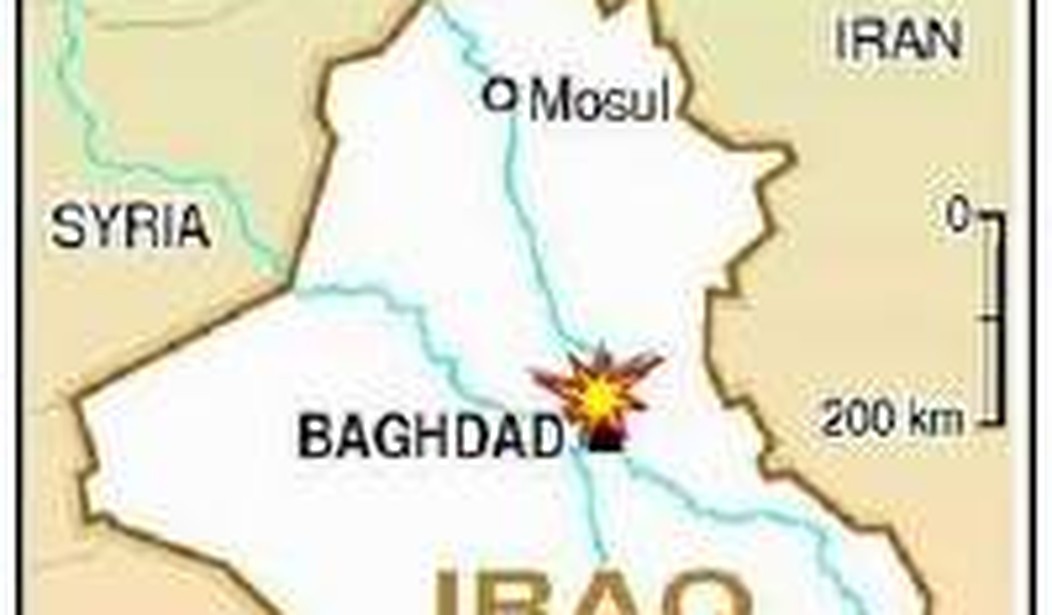The team military forensics will examine a number of corpses, taking fingerprints, scrutinizing teeth and DNA, to see if al Masri is indeed among the dead. Whether he is dead will remain a mystery until the military team completes its work.
Thanks, to Egyptian intelligence, America has extensive medical records on al-Masri. Al Masri was a member of an elite special forces unit in Egypt in the 1970s.
Due to his extensive military background, al Masri is seen as a uniquely effective al Qaeda leader. Unlike most of the terror network’s leadership who know guns and bombs, but not strategy and discipline, he has formal military training (in Egyptian special forces, where he the future head of al Qaeda’s military wing, Saif al-Adel) and spent some time in the Soviet Union’s “special schools.”
Al Masri’s significance can be best observed by contrasting his leadership with that of his predecessor, Abu Musab al Zarqawi. Before his death in June 2006, Zarqawi’s charisma came from his delight in brutality. He enjoyed screening videos of captives being tortured or killed. Days before his death, Iraqi forces found wooden fruit boxes containing nine heads of Sunni imams who had defied Zarqawi and called for peace. Zarqawi was known for making impulsive decisions that upended plans that had been in the works for weeks and he sometimes fought bitterly with Sunni group allied with him. Captured correspondence reveals allied sheikhs begging Zarqawi to stop killing their men, fellow muslims who joined him in jihad.
Al Masri corrected these errors. He has improved relations with his sunni allies and allows them to air their issues in regular Shura council meetings. Inter-insurgent killings have dropped. Al Masri has little taste for personal depravity. While the so-called Just Punishment brigades still commit atrocities in the name of Islam, al Masri apparently does not watch the videos. Indeed, the videotaping activity seems to have diminished significantly.
When it comes to war, al Masri is a cool and calibrated professional. He ordered a retreat from Baghdad months before the surge reached full power (which it hasn’t yet) and a regrouping in Diahalla province, northeast of Baghdad on the Iranian border. The area is a base of support-especially in the form of “taxes” extracted at gunpoint from residents-and is more easily defended.
From there, he ordered massive car bombings of Baghdad, in the way a general would call in air support.
Or, if you want to use mafia metaphors, al Masri operates in the cool style of Michael Corleone in the Godfather trilogy of al Qaeda, while Zarqawi was more like the sadistic Scarface.
Given his special skills and leadership ability, al Masri’s death would be a real blow to al Qaeda operations in Iraq.
But is al Masri really dead? Reuters is cautioning that “Iraqi authorities did not have Masri’s body, but the source added that “our people had seen the body”.”
This report, citing Deputy Prime Minister Barman Salih, claims that there is a body.
Salih, who I interviewed in Iraq a few weeks ago, is a careful politician, who unlike some Iraqi generals, has a very good track record for telling the truth.
But caution is warranted. Media reports of his death have been wrong before. Last October 5, he was reported dead following a raid by U.S. troops in Haditha. DNA evidence later showed that those reports to be false.
If he is dead, who killed him? Here media reporting appears confused, by Pajamas exclusive sources can add some insight. CNN and others are reporting that local Sunni tribes from Fallujah killed him. The New York Times, relying on Iraqi government sources, said that al Masri was killed by rival insurgent groups.
These reports are misleading or incomplete. Most likely, our sources tell us, al Masri was felled by former insurgents who have come over to the American side. “Those would be the Albu Issa, which have been subjected to an incredibly brutal campaign by AQI that has included the use of chlorine bombs in Amariyah,” one official said. The Albu Issa tribe is allied with the Coalition are part of Sheikh Abdul Sattar’s Anbar Salvation Front, which unites 26 out of the 31 Anbar province tribes against al Qaeda.
“The US is working with a number of former insurgent groups including 1920 Revolution Brigade to fight AQI in Anbar,” the source adds. “Bill Roggio has reported in the past that many of the Anbar Salvation Front members are former 1920 Revolution Brigade or Islamic Army of Iraq fighters who have now joined the Coalition to fight AQI as part of Sheikh Abdul Sattar’s amnesty program.”
—
Richard Miniter is PJM’s Washington editor; he recently came back from assignment in Iraq.









Join the conversation as a VIP Member